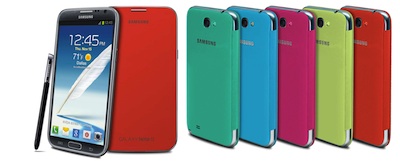Nothing quite like the iPhone had been seen before in the mobile industry when it launched in 2007, writes Bengt Nordstrom. The device radically altered the mobile industry forever.
Apple has turned this success to its advantage.
In November, it emerged that the technology giant was not allowing operators to offer its new iPhone 5 as an LTE device until it had tested and approved the performance of their networks.
Traditionally an operator has tested devices to see if they qualify for use on its network.
This is one part of an overall Apple strategy that has caused much resentment among mobile operators.
This animosity is allowing other handset vendors to capitalise and challenge Apple’s market leadership. So far, the only successful, and bitter, rival to Apple is Samsung.
Samsung is generating great market success in applying many of the aspects that worked so well for Apple – offering innovative handsets with a fantastic user experience.
Its new Galaxy S3 device outsold Apple’s iPhone 4S for the first time last November to become the world’s best-selling smartphone, according to Strategy Analytics.
This success has been followed by Apple unleashing a salvo of patent infringement litigation cases against Samsung – which has responded in kind.
But while Apple and Samsung’s success is a positive for them, it remains to be seen how this market power impacts the industry as a whole.
Some sections of the mobile industry argue that operators have been in control for too long.
They believe it is healthy that vendors, such as Samsung and Apple, have more market power because they embrace the entire user experience better than operators do.
However, many suggest that these two players are now too powerful and that this works against operators.
Industry watchers have speculated that Apple, in particular, is biting the hand that feeds it.
In an industry founded on collaboration and open standards, Apple’s high-handed attitude is very threatening.
During the previous eight years, the handset sector has more than doubled its share of global telecom industry operating profits to 11 percent. Last year, nearly all of this was channelled into the coffers of Apple and Samsung.
Carriers must realise this and seek to stimulate healthy competition in the handset market; otherwise the increasing market power of these two companies will fundamentally alter the direction of the industry and the role of the operator.
Apple and Samsung have the means to further increase their spending on innovation, R&D and standardisation. This is happening during a period when infrastructure vendors and operators, the previous drivers of this activity, are suffering in an extremely financially constrictive environment.
Standards driven by Apple and Samsung could lead to a much less open environment. R&D and innovation driven by handset vendors poses clear risks of introducing interoperability issues and a lack of harmonisation.
Examples of what could be lying ahead can be found in the specifications for the latest Apple and Samsung smartphones.
Apple has decided that WiFi would substitute for secure mobile broadband “everywhere”.
Similarly, the latest Samsung models employ a SIM-based WiFi authentication process to simplify logging on for subscribers.
The other example of device driven innovation is the on-going battle over the future of the SIM.
Apple is campaigning for the SIM to become part of the handset – either as embedded (through smaller and smaller form factors) or in the form of a soft SIM.
These innovations could see mobile operators become disposable access providers – disrupting the entire mobile telecommunications value chain as we know it.
However, the operator hegemony in the mobile industry is not over just yet.
Leadership in the device market can come and go; as demonstrated by the long-suffering Nokia.
Apple has come under fire for a perceived lack of innovation of late. This negative coverage has seen a dip in iPhone loyalty figures for the first time.
Another factor going against the handset vendors is that they are still locked in to a long-winded, extremely costly and damaging patent litigation spat.
Then there is the attention of international telecoms regulators – which Samsung and Apple have both received.
Regulatory interventions aside, operators are the players in the value chain that are facing the big decision.
Are they prepared to fight to retain a greater degree of control or cede ground to the next up-and-coming device manufacturer?
Few begrudge Apple or Samsung their success. However, an ecosystem cannot be successful if only one or two players derive value from it.
To build networks that can process traffic in five or 10 years’ time requires significant R&D investment now.
That investment will have to come from profits, or else it will not exist.
The blame for this situation does not lie with the vendors. The finger can be pointed at operators that have underestimated just how crucial R&D and technology standardisation are to the global mobile ecosystem.
If operators do not contribute in this area then other parties, who are less interested in the development of open standards, will do so.
Continued market pressure on infrastructure vendors, coupled with operators slashing activity in standardisation and R&D, will give rise to a situation which could damage what has been developed over the last 25 years.
We could face a market scenario in which two handset vendors lead R&D activity, interoperability issues are rife and harmonisation of mobile technology faces an uncertain future.
All stakeholders in the mobile industry, including mobile operators and infrastructure vendors, have a responsibility to ensure an open and healthy mobile ecosystem.
Bengt Nordstrom is co-founder and CEO of strategic wireless business consultancy Northstream.
Bengt will be making a keynote presentation at European Communications’ Enterprise Opportunity seminar on 29 Jan. Click here to learn more


